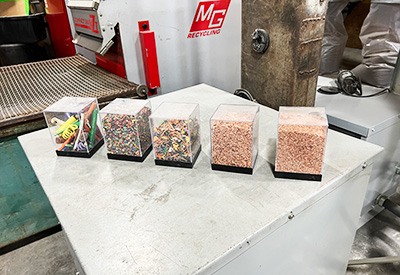A few months back, COR was privileged to be part of a delegation from Portland that visited Denmark to learn about their clean business model known as industrial symbiosis. As a follow-up to that experience, the team we visited in Denmark came to Portland in October, to further share their experiences and also see the efforts we have made here to adopt their model. The experience of meeting and learning from the Danes hit us deeply as we were given a glimpse into how a group of citizens, government officials, educators, and businesses could collaborate for the better good, reduce carbon impacts, create jobs, and invest into a more positive future. Their story is remarkable but replicable.
Meetings were set with various stakeholder groups which included government agencies, the business community, environmental justice advocates, research and development, and the broader community. But the efforts rely heavily on the model of the future public-private-philanthropic partnerships (P4) and collaboration.
The green transition in Denmark was sparked by the oil crisis of the 1970s and bolstered decades later by the Paris Agreement. During these years, the country made a concerted effort to increase the use of natural gas, peat, and renewable energy, while phasing out coal and oil. Since 1990, Denmark has seen a 50% reduction in greenhouse gas emissions along with steady economic growth, proving environment and economy can benefit one another. In Denmark’s Industrial Symbiosis hub there is a cluster of world-leading industries that work together to share excess energy, water, and materials. Today there are 20 different streams of resources flowing among about 14 companies. Working together has fostered trust, powered innovation, and boosted well-paying job growth. The industrial cluster last year saved nearly 600 tons of CO2, 4 million cubic meters of water, and 62,000 tons of materials from being wasted.
 The key takeaways for the Portland-based stakeholders who heard from the Danes were that taking action to reduce GHG’s is not up for debate, getting to emission reduction goals takes collaboration, and if Portland wants to return to its former position as a leader in sustainability, being an early adopter of industrial symbiosis may just be our best shot.
The key takeaways for the Portland-based stakeholders who heard from the Danes were that taking action to reduce GHG’s is not up for debate, getting to emission reduction goals takes collaboration, and if Portland wants to return to its former position as a leader in sustainability, being an early adopter of industrial symbiosis may just be our best shot.
COR embraces the model of a circular economy that industrial symbiosis represents whereby waste or by-products from one industry is turned into raw materials for another. To see this work in practice was both refreshing and humbling, but more than anything it inspired us to take action. COR is not alone in understanding the full value of industrial symbiosis. We were joined by representatives from our local public agencies, as well as from Portland-based industrial companies Vigor and Evraz.
The delegation was formed of those who share the goal of reducing greenhouse gas emissions and other wastes. Our international experience led us to recognize that the adoption of a model like Denmark will take a more collaborative approach than has ever been done in Portland, and arguably across the U.S. Decreasing the gap between business and government, taking serious efforts to invest in technologies that reduce pollutants, and reframing the mindset that achieving carbon reduction is too hard or doesn’t bring enough ROI, are required to accomplish the goal of a sustainable future.
Portland is not Denmark, but an essential part of their experience that we must learn is to get out of the mindset of an extractive economy and turn to a living economy that fosters regeneration. It is going to take hard work to get Portland back to a position as a global leader in developing sustainable ecosystems. We’re haunted by our history of not investing in diverse perspectives, and focusing on making money by any means necessary. Making money is not bad unless money-making takes priority over human capital and the environment who are viewed as expendable. We need to carve a new humanistic approach to how we govern, conduct business, innovate and decarbonize our future. Environment, economy, and equality are the three pillars that either hold up or bring down our society.
The information we gained from the Danes may be the catalyst to getting us to look at doing things differently, to dare to be on the same page committed to unbiased discussion, seeking inclusion, and changing the course of how we conduct business. Sustainability in economic development is necessary for the advancement of humanity and if we can’t see that then we are as blind as our predecessors. Portland has a long history of getting things right with progressive policies and we can do it again. Contact us if you want to talk about what’s possible.